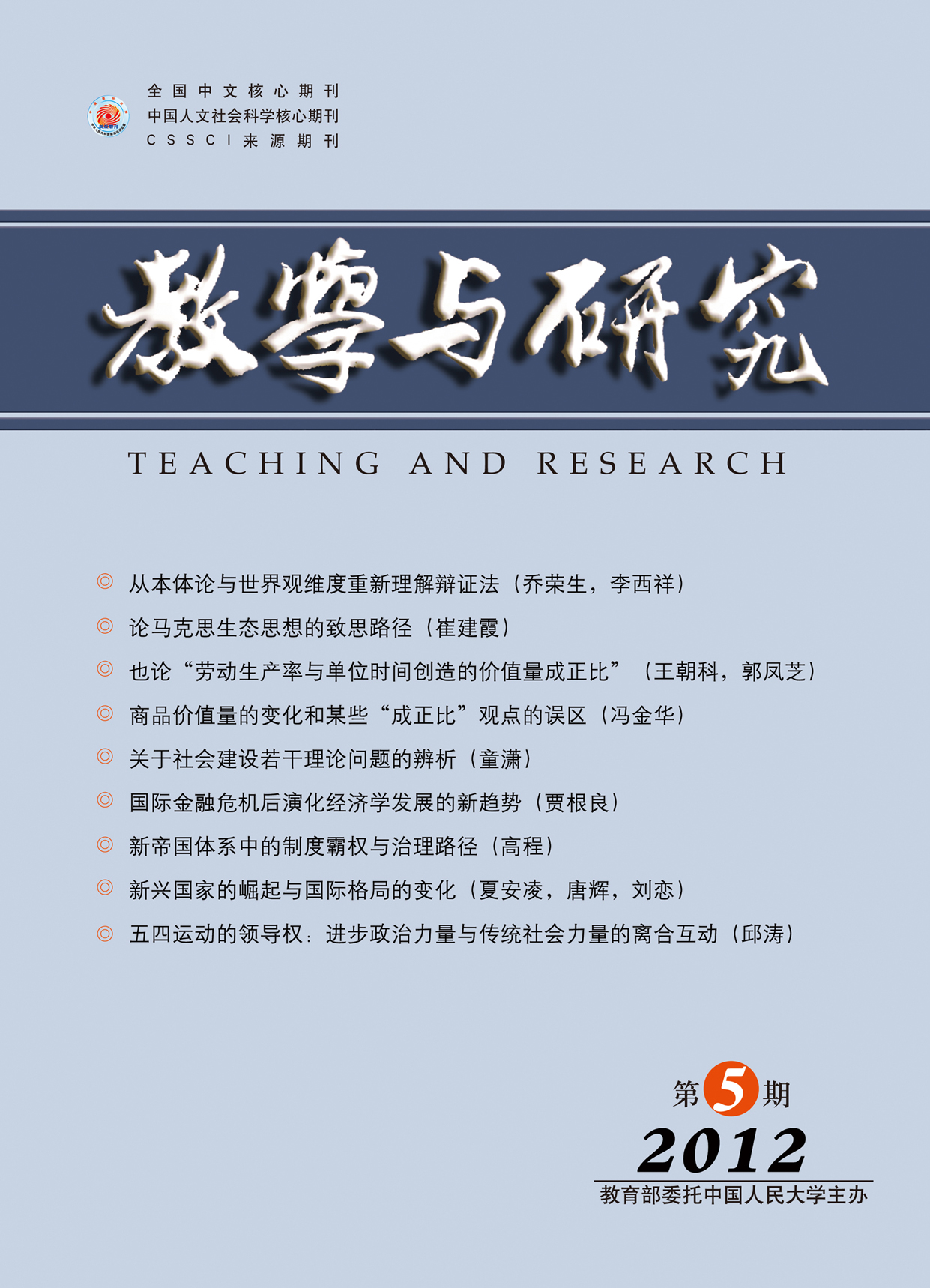|
|
An Analysis of Some Theoretical Issues about Social Construction
TONG Xiao
2012, 47 (5):
34-40.
DOI:
To strengthen social construction with a focus on improvement of people’s livelihood it is important to acquire a proper understanding of what social construction really means. In terms of the subject of social construction “society” does not refer to civil society. Instead, it refers to society in a neutral sense, that is, a society that “follows the operational principles of common interests, protection and aids through communication among the people”. The principal part of social construction is not merely the government. The Party committee, social organizations and the public all have a share, and the National People’s Congress, CPPCC, democratic parties, workers, young people and women should all take up the responsibility. In terms of the path of social construction, it is not simply a matter of the government passing on its power to the society, quitting the society and leaving the society alone. On the contrary, in many areas or fields the role of the government should be definitely spelt out and reinforced through interference and involvement, responding to people’s complains through institutional or mechanical innovation. As for the emphasis of social construction, it is clear that social construction is aimed at improvement of people’s livelihood rather than aiming at anything else.
Related Articles |
Metrics
|



